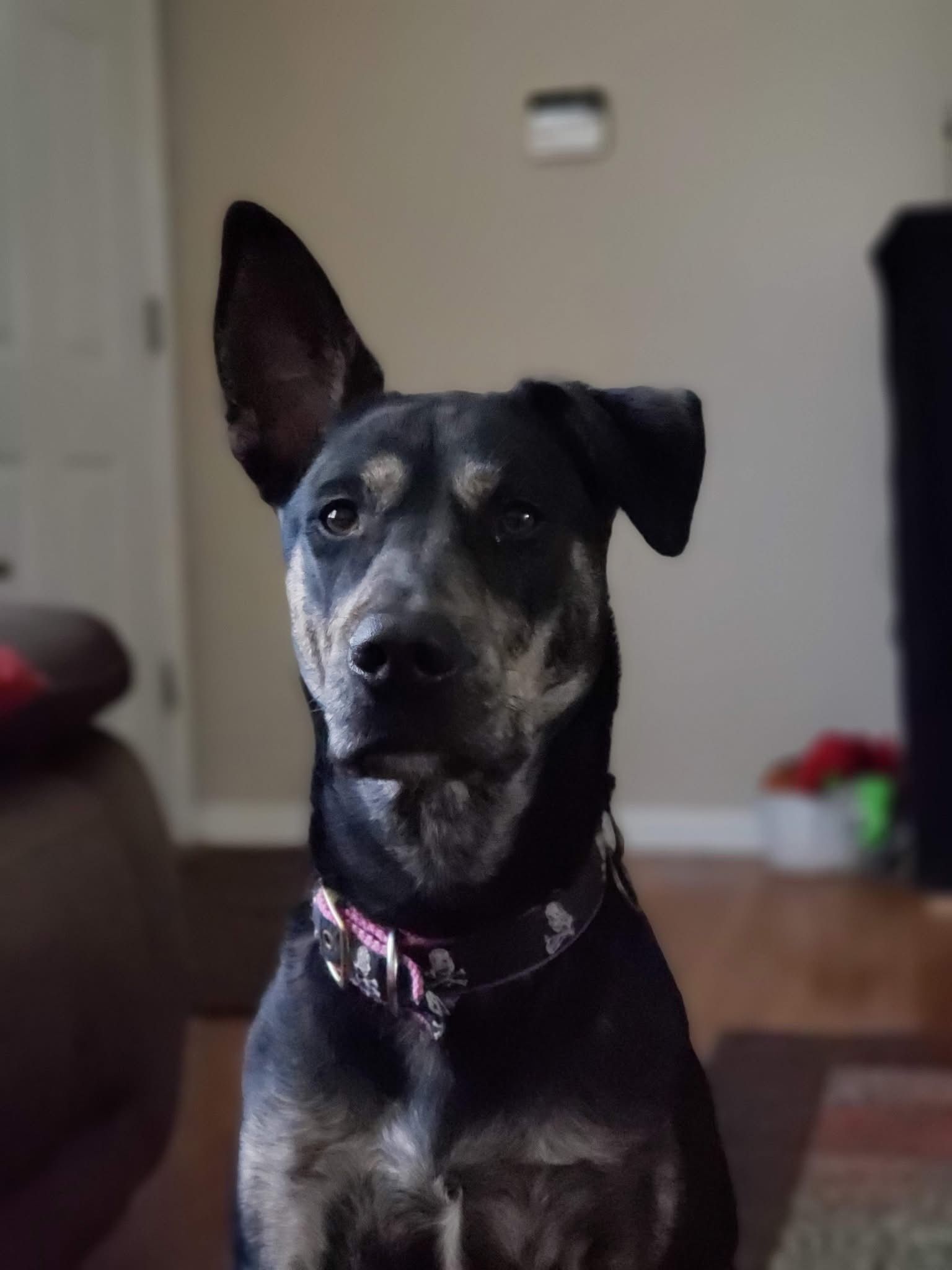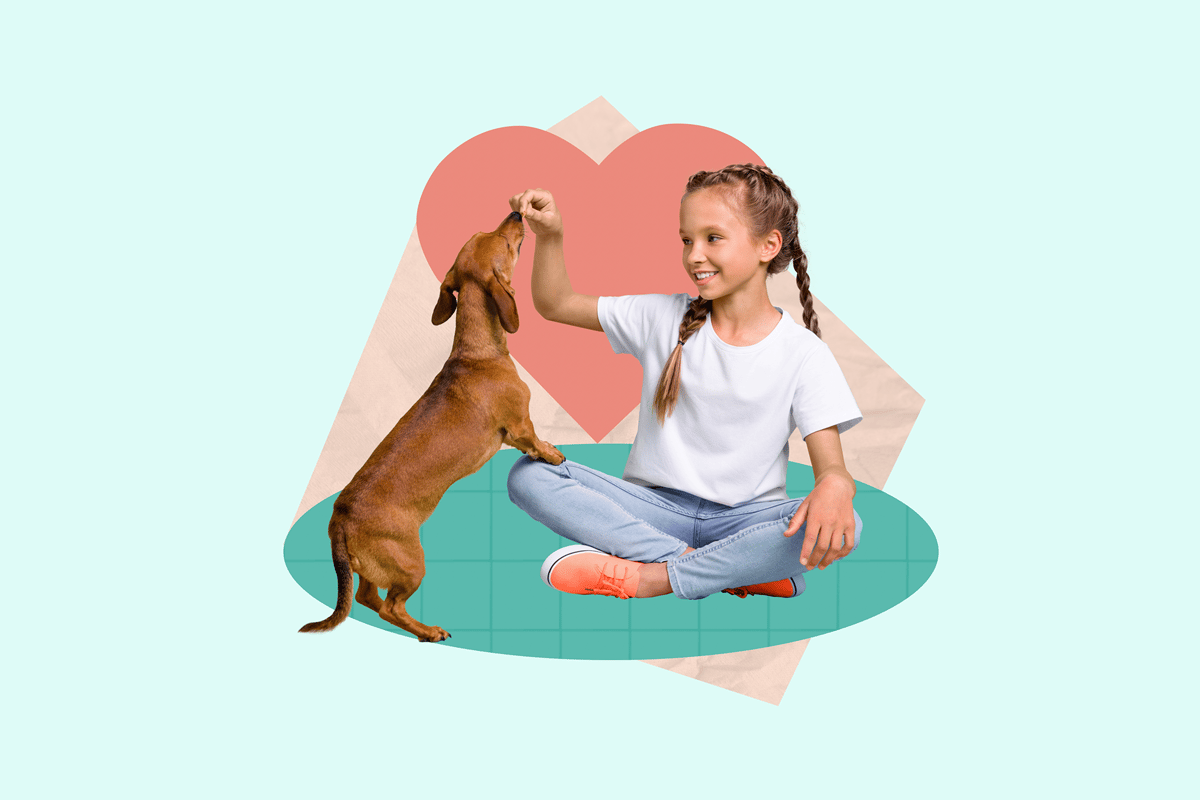Your daily dose of doggy goodness!
Every day, we celebrate our shared love of dogs and hopefully brighten your day. Enjoy!
Dog of the Day:
Baloo!
Meme of the day: Forever plus one!
Only 4% of pet owners are thinking ahead
86% of pets aren’t insured. That means most pet parents could be on the hook for the sky-high vet bills that often come with unforeseen accidents and illnesses.
While it's impossible to pinpoint an exact percentage, it's likely your pet will get sick or injured during their lifetime. Pet insurance can help offset these unexpected costs. Many plans even let you choose a deductible and reimbursement level, which could allow you to arrive at a monthly premium you can afford. Check out Money’s list of their top pet insurance picks and start protecting your furry buddy today for as low as $10/month.
How to Spot Dog Dementia
It's a familiar joy for many of us: the happy, wagging tail that greets us at the door, the excited bark at the sound of a food bowl, the comforting presence curled up at our feet. Our dogs are more than just pets; they are cherished members of our families, and as they age, we want to ensure their golden years are as comfortable and happy as possible.
Just like humans, dogs can experience cognitive decline as they grow older. This condition is known as Canine Cognitive Dysfunction (CCD), or more commonly, "dog dementia." It's a progressive, neurodegenerative disorder that can affect a dog's memory, learning, and overall awareness. While it can be heartbreaking to see our beloved companions change, understanding the signs of dog dementia is the first step toward providing them with the support and care they need.

What are the signs to look for?
Dog dementia often manifests in subtle ways at first, and it's easy to mistake them for normal aging. However, when these behaviors start to become more frequent or severe, it's worth paying attention. Veterinarians often use the acronym "DISHA" to help owners remember the key signs:
Disorientation: This is one of the most common signs. Your dog might seem confused in familiar places, get "stuck" in corners, or stare blankly at walls. They might forget where their food or water bowls are, or they might seem lost in their own backyard.
Interaction changes: You might notice a change in how your dog interacts with you and other family members. They might seem less interested in being petted, or they might not greet you with the same enthusiasm they once did. Conversely, some dogs with dementia may become more clingy or irritable.
Sleep-wake cycle changes: A dog with dementia may sleep more during the day and be awake and restless at night.This can lead to pacing, whining, or barking in the dark, which can be unsettling for both the dog and the owner.
House soiling: This can be one of the most frustrating signs for owners. A previously house-trained dog may start having accidents indoors, not because they've forgotten the rules, but because they've forgotten where the door is or they've lost control of their bladder or bowels. It's crucial to remember that this isn't an act of defiance; it's a symptom of a medical condition.
Activity level changes: You might notice your dog's activity level has decreased. They might show less interest in playing with their toys or going for walks. On the other hand, some dogs with dementia may become restless and pace aimlessly.
Why is it important to recognize these signs?
While there is no cure for dog dementia, recognizing the signs early allows you to work with your veterinarian to develop a management plan. This plan might include:
Medication: There are medications that can help manage some of the symptoms of dog dementia and improve a dog's quality of life.
Supplements and diet: Certain supplements, such as antioxidants and omega-3 fatty acids, can support brain health. Your veterinarian may also recommend a special diet formulated for senior dogs.
Environmental enrichment: Keeping your dog's environment consistent and safe is crucial. Try not to move furniture, and create a calm, predictable routine. You can also provide puzzle toys and other forms of mental stimulation to keep their minds active.
Patience and love: This is perhaps the most important part of caring for a dog with dementia. They are still the same loving companions we've always known, but they need our patience and understanding more than ever.
Aging with our dogs is a beautiful journey, and while it can come with challenges like dementia, it's a time to cherish the memories we've made and to provide them with the gentle care they deserve. By understanding the signs of dog dementia, we can ensure their final years are filled with comfort, dignity, and most importantly, love.
Seeking impartial news? Meet 1440.
Every day, 3.5 million readers turn to 1440 for their factual news. We sift through 100+ sources to bring you a complete summary of politics, global events, business, and culture, all in a brief 5-minute email. Enjoy an impartial news experience.
Dog Food and Supplement Recalls
Here are the recent recalls and advisories:
Savage Pet - Cat Food Chicken for potential bird flu exposure
Wild Coast Raw - Frozen Boneless Free Range Chicken Formula raw pet food for cats for possible bird flu exposure.
Blue Ridge Beef - Natural Mix for potential salmonella.
The Smile Section
Family Photo of the Day:
Abby!

We want to feature your pup!
We want to share your pup with our pack. Email us your favorite doggy pic or video with your pup’s name, and we'll try to feature it as a family photo in one of our upcoming newsletters or on our Facebook page.
Interested in reaching our audience?
Like newsletters?
Here are some newsletters our readers also enjoy:
Share our newsletter with your friends!
We’ll donate on your behalf!
🐶 Refer 10 people: We will donate a box of treats to an animal rescue 🐶
🐶 Refer 50 people: We will donate a bag of dog food to an animal rescue 🐶
🛏 Refer 100 people: We will donate a dog bed to an animal rescue 🛏
{{rp_personalized_text}}






